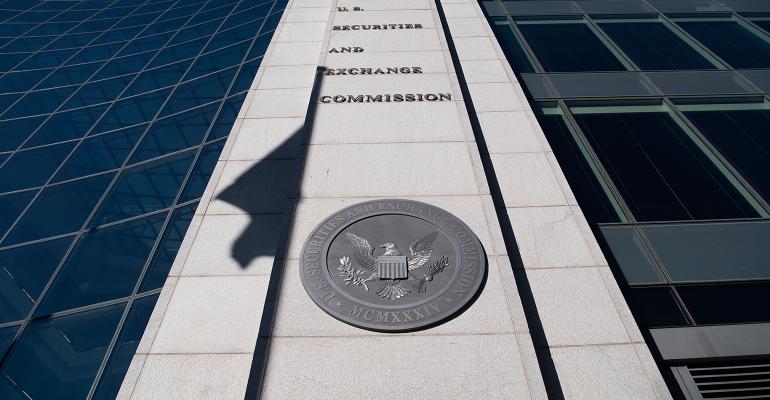A jury this week found that Pennsylvania-based investment advisory firm Ambassador Advisors breached its fiduciary duty when investing clients’ funds in mutual fund share classes when more affordable options were available, according to the Securities and Exchange Commission.
The case involving Ambassador Advisors is a rare instance of an advisory firm challenging the SEC's charges around mutual fund share class disclosures and taking the case to a jury trial; the vast majority of similar cases against advisory firms end in a settlement. SEC Enforcement Division Director Gurbir S. Grewal lauded Wednesday’s verdict, saying he was pleased Ambassador Advisors had been held liable for what he characterized as "investment advisory fraud."
“Investment advisors have fiduciary duties to act in their client’s best interest, to seek best execution of client transactions, and to fully and fairly disclose all material facts relating to conflicts of interest,” he said. “And when they don’t, as the jury found today, they put their clients at risk.”
The SEC first filed a complaint against the firm in May 2020. According to court records, Ambassador Advisors was based in Lancaster, Pa., with about $270.6 million in managed assets; Robert Kauffman (president of Ambassador), Bernard Bostwick (an executive vice president) and Adrian E. Young (another EVP and chief compliance officer) were the other defendants in the case.
The SEC’s complaint centered on the firm’s actions from 2014 to 2018, when it managed between 2,300 and 4,900 client accounts. Advisors would often invest clients’ money in mutual fund share classes with fees that compensated the firm, even as lower-fee share classes of the same fund were available and, according to the SEC, more appropriate for clients.
In the case of funds with 12b-1 fees, a portion of the investor’s investment would be sent back to the broker as a referral fee. In this case, the fees would go to Ambassadors’ brokers, and, according to court documents, the firm had an agreement with one of its brokers to get 95% of those fees back.
In total, the SEC believed the firm received at least $777,443 from the fees. The SEC argued the firm fell short on its best execution duties when it didn’t place clients’ funds in share classes with a “more favorable value,” and erred in not disclosing to clients that their investments were subject to fees above what they would have paid in another share class.
In a statement released after the verdict, Ambassador argued that Grewal's characterization of the decision made it seem "more inflammatory" than was actually the case.
"The complaint was part of the SEC's share class disclosure initiative in which many advisory firms across the country settled as a path of least resistance," said Robert Nayden, the firm's director of operations. "We were one of the only firms to challenge this SEC initiative of creating new regulation without following the formal rule making process."
According to Ambassador, the firm followed the SEC's instructions on disclosures "precisely," but the SEC (and ultimately the jury) argued that more was necessary, even as Ambassador argued clients were not overcharged.
"Unfortunately, it doesn't matter if an advisor is leading a Ponzi scheme or simply omitting preferred disclosure verbiage, any infringement is considered a violation of fiduciary duty to clients," the statement read. "As such, by not having the SEC Enforcement Division's creative disclosure verbiage in its 2014-2018 documents, Ambassador was deemed to have committed a 'fraud or deceit.'"
Mutual fund share class disclosures has been a busy area of enforcement for the commission in recent years. The SEC opened a window for firms to self-disclose these kinds of mutual fund conflicts without penalty in 2018. Since then, the commission has aggressively pursued cases against firms that did not take part in the amnesty program, the vast majority of which end up settling and paying a fine; just last summer, the commission brought charges against J.W. Cole Advisors, Cascade Investment Group, Centaurus Financial and Berthel Fisher & Company Financial Services, among others.
But a few cases could still head to trial, including the commission’s complaint against CapWealth Advisors, a Tennessee-based advisory firm. The SEC charged CapWealth with failing to disclose conflicts about mutual fund share class selections, but CapWealth founder and CIO Timothy J. Pagliara has vowed to fight the charges, with a jury trial scheduled to begin in June.
In a recent interview with WealthManagement.com, Pagliara called the SEC’s accusations “pure intimidation, bullying and governing overreach,” and bemoaned the plight many RIAs face when accused by the commission of share class selection disclosure violations.
“The problem is nobody’s got the resources to fight them and it becomes too easy to settle,” he said. “They don’t have the money to fight and they don’t investigate.”
Groups like the Financial Services Institute have long criticized the SEC’s share class enforcement practices, arguing the commission is unfairly subjecting brokers to de facto rules and regulations that the agency never passed. But according to Senate testimony from 2020, former SEC Chair Jay Clayton argued the SEC’s approach was the best way to deal with a widespread industry practice.
“I understand that some people felt that they were within the bounds of the law, where we felt they were not,” he said during testimony. “I’m hopeful there’s been more clarity brought to this, but I’m also comfortable that the Enforcement Division pursue this, having that belief that they were on the right side of the law.”




